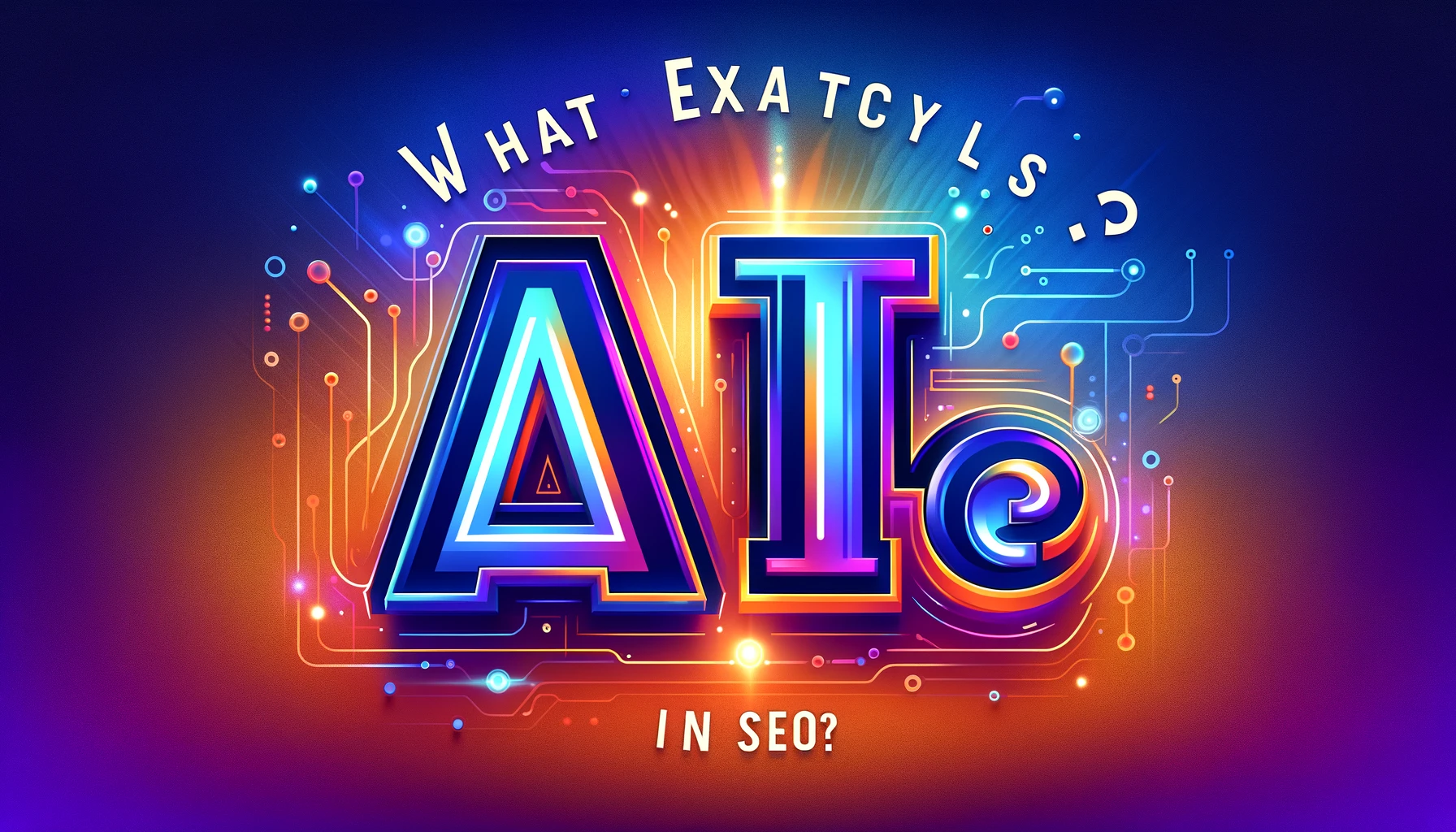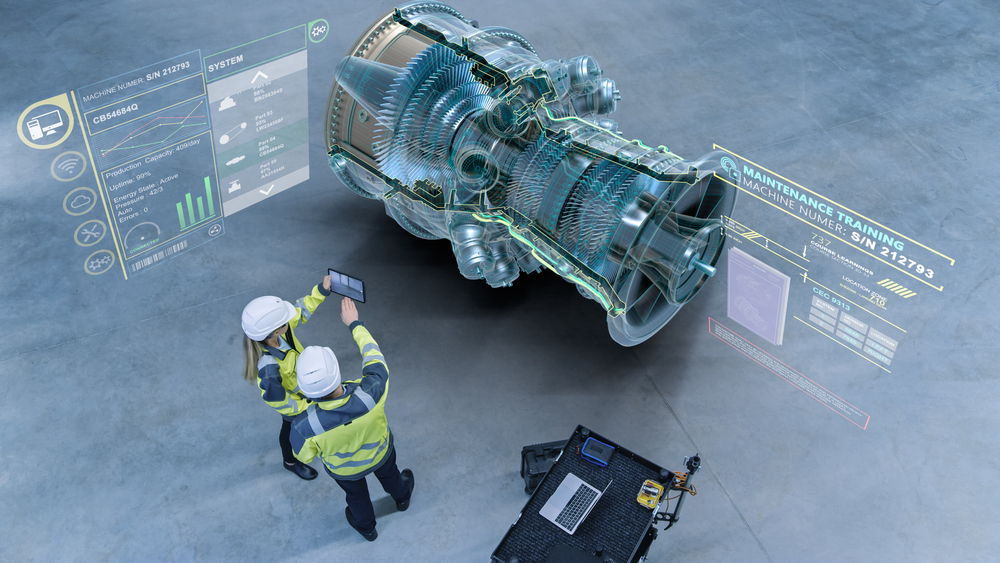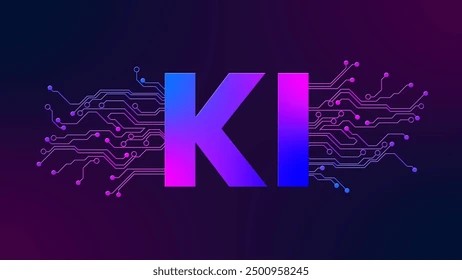Artificial Intelligence (AI) has become an integral part of many industries, and SEO is no exception. It is transforming the way businesses approach search engine optimization, making processes faster, smarter, and more effective.
In this blog post, we will dive into the concept of AI in SEO, its impact, and how it is reshaping the way SEO professionals and businesses approach optimization. Whether you’re an SEO expert or a business owner looking to improve your online presence, this post will shed light on how AI is playing a pivotal role in modern SEO strategies.
What Is AI in SEO?
AI in SEO refers to the use of artificial intelligence technologies to optimize websites and online content for search engines. AI tools and algorithms can analyze data at a speed and scale that humans cannot match. In comparison to traditional SEO techniques that rely on manual keyword research, content creation, and link-building strategies, AI-powered tools are capable of automating much of this work and providing more accurate insights based on real-time data.
AI can be used for a wide range of SEO tasks, such as content optimization, keyword research, user experience improvements, competitive analysis, and more. As search engines become increasingly sophisticated, AI’s role in SEO will only continue to grow. With the help of AI, SEO experts can refine their strategies, improve website rankings, and ensure that their content is aligned with the evolving search engine algorithms.
Key Ways AI Improves SEO
Artificial Intelligence (AI) is drastically reshaping how SEO is approached by businesses and SEO professionals. With its advanced algorithms and data-driven insights, AI is bringing a new level of efficiency and precision to the world of search engine optimization. Below are key ways AI enhances SEO practices and contributes to better search rankings and user experiences:
1. AI-Driven Keyword Research
Keyword research is one of the foundational elements of any SEO strategy. Traditionally, SEO experts relied on manual tools and experience to discover keywords that could drive traffic to a website. However, with the advent of AI, this process has become significantly faster and more effective. AI-powered tools can analyze vast amounts of search data and identify keywords that have the highest potential for success.
- AI tools evaluate search patterns, competition, and user behavior using machine learning.T
- hey suggest primary, secondary, and long-tail keywords aligned with user intent.
- SEO professionals can target keywords that boost traffic and conversions.
- AI generates keyword ideas based on trends and real-time search data for a competitive SEO strategy.
2. Content Creation and Optimization
Creating relevant, high-quality content is essential for SEO. AI tools can assist in optimizing content by analyzing what works best for high-ranking pages on the web. These tools examine factors like keyword usage, content length, structure, and readability, providing detailed insights on how to improve your content to meet search engine guidelines.
In addition, AI can generate content ideas or even assist in drafting certain portions of a page. For example, AI can produce engaging meta descriptions, product descriptions, or blog posts that are in line with SEO best practices. Furthermore, for specific niches like adult content, AI-powered tools can help create SEO-friendly strategies that align with the unique requirements of an Adult SEO agency. This allows agencies and businesses to stay relevant and competitive within specialized industries.
3. User Experience (UX) Optimization
Google’s algorithms emphasize user experience as a key ranking factor. A website that offers a poor user experience is less likely to rank high in search results. AI can optimize various aspects of UX, ensuring that a website is user-friendly and performs well across devices. AI-driven tools can analyze website data to detect slow-loading pages, broken links, or complex navigation that could hinder user experience.
- AI can suggest website design improvements for better usability.
- Recommends simplifying navigation and enhancing call-to-action buttons.
- Suggests making content more accessible for users.
- Improves UX to boost rankings and reduce bounce rates.
- Encourages users to spend more time on the site.
4. Voice Search Optimization
The increasing use of voice assistants like Siri, Alexa, and Google Assistant has made voice search optimization a critical aspect of SEO. Voice searches tend to be longer and more conversational compared to traditional text-based searches. AI plays a crucial role in identifying patterns in voice search queries and adapting content to cater to this growing demand.
AI can analyze how users phrase voice searches, providing insights into the keywords and phrases that are more likely to trigger voice search results. As a result, businesses can tailor their content to match these conversational phrases, ensuring they rank for voice-based searches. Optimizing for voice search helps businesses stay ahead of the curve and capture a growing segment of search traffic.
5. Predictive Analytics and Trend Forecasting
AI can analyze large datasets and predict trends with remarkable accuracy. In the context of SEO, AI-driven predictive analytics can help businesses stay ahead of emerging trends and optimize their content accordingly. By examining historical data and current search behavior, AI tools can forecast which keywords, topics, or content types are likely to become more popular in the near future.
For businesses, this predictive capability allows them to adjust their SEO strategies proactively rather than reactively. They can create content that meets future search demands, ensuring that they are positioned for success as search trends evolve. Similarly, AI can also provide insights into competitors’ strategies, enabling businesses to refine their own approach and stay competitive in their niche.
6. Automating Repetitive SEO Tasks
SEO involves many repetitive tasks, such as backlink analysis, on-page SEO audits, and keyword tracking. AI can automate these tasks, saving time and effort for SEO professionals. For example, AI-powered tools can analyze the backlink profile of a website, identify toxic backlinks, and suggest new opportunities for link-building.
AI can also handle routine website audits, checking for SEO compliance and ensuring that content is up to date. By automating these tasks, businesses can focus on strategy and creativity, while AI handles the time-consuming, technical aspects of SEO.
7. AI-Powered Content Recommendations
AI can help businesses provide a more personalized user experience by recommending content that is relevant to individual visitors. AI algorithms can track user behavior on a website, such as the pages they visit, the time they spend on each page, and the content they engage with. Based on this data, AI tools can recommend other content that may interest them.
This level of personalization not only enhances the user experience but also contributes to SEO by increasing engagement and reducing bounce rates. The more engaged visitors are with the content, the more likely they are to stay on the site longer, share the content, and return in the future. As a result, AI-driven content recommendations can have a significant impact on SEO performance.
8. Improved Local SEO
AI is particularly useful for improving local SEO. Local SEO is essential for businesses that rely on foot traffic or regional customers, such as restaurants, retail stores, or healthcare providers. AI-powered tools can help businesses optimize their local listings, improve their presence on Google My Business, and ensure that they are easily discoverable by users searching for nearby services.
AI can also assist in analyzing customer reviews, identifying common themes, and responding to feedback in real-time. By improving local SEO with AI, businesses can increase their chances of appearing in local search results, which is crucial for attracting nearby customers.ent for both search engines and users. With AI’s continuous evolution, the future of SEO looks promising, and companies that adopt these technologies will be well-positioned for success.
The Role of AI in SEO Agencies
AI is not only revolutionizing SEO services for individual businesses but also for SEO agencies. Agencies, particularly those focusing on niche markets like adult content or e-commerce, are increasingly relying on AI tools to manage multiple clients, optimize large volumes of content, and track performance.
For instance, an Adult SEO agency that focuses on optimizing adult-related websites can benefit from AI-driven tools to identify trends in search behavior, develop content that aligns with user intent, and improve website rankings. AI can also streamline repetitive tasks like backlink analysis or content updates, giving agencies more time to focus on strategy and client management.
In comparison to traditional SEO methods, AI enables agencies to scale their operations more effectively. They can serve more clients, offer more personalized services, and adjust campaigns on the fly based on real-time data. This level of efficiency and adaptability is crucial in an industry where search engine algorithms are constantly changing.
AI-Powered SEO Tools You Can Use
There are several AI-powered tools available that can help businesses optimize their SEO efforts. Some popular AI tools include:
- Surfer SEO: Surfer SEO uses AI to analyze SERPs and offer actionable insights for on-page optimization, keyword research, and content creation.
- Copy.ai: This AI tool helps generate high-quality content for blogs, social media, and landing pages. It can be used for content writing and optimizing text for SEO.
- FantasyGF AI: FantasyGF AI brings your virtual dreams to life! Create personalized AI girlfriend and explore unique interactions. Experience endless possibilities with just a click. Dive into a world of imagination today!
- Frase.io: Frase.io uses AI to help businesses identify the best keywords, create SEO-friendly content, and track how well it performs in search results.
- MarketMuse: MarketMuse offers AI-driven content research and optimization, helping businesses create content that will rank higher and resonate with users.
- Clearscope: Clearscope uses AI to optimize content for target keywords and ensure it aligns with what is ranking well on the web.
AI in SEO for the Future
Looking ahead, AI will undoubtedly continue to play a significant role in SEO. While traditional SEO techniques are not going away, AI will complement them by offering new insights and strategies that were once impossible to achieve manually. AI will continue to evolve, offering even more sophisticated tools that can predict trends, automate tasks, and create more personalized user experiences.
For businesses, the key to success will be adopting AI-driven SEO strategies early and adapting to the changing landscape. Those who embrace AI will have a competitive edge in the increasingly crowded online space.
Conclusion
Artificial Intelligence is not just a buzzword; it is an essential component of modern SEO strategies. From keyword research to content optimization, AI is transforming the way businesses approach SEO. By leveraging AI tools, businesses can stay ahead of the competition, improve user experience, and optimize their content for both search engines and users. With AI’s continuous evolution, the future of SEO looks promising, and companies that adopt these technologies will be well-positioned for success.
Also Read
- ► The Ultimate Guide to Noise Control Panels: Your Key to a Quieter World
- ► Why You Should Consider Computer Rental Services for Smart Computing
- ► A Comprehensive Guide to Aviation Courses After 12th
- ► How Effective is OET Coaching for Exam Preparation?
- ► Atlas Pro ONTV : Révolutionner la diffusion IPTV
- ► What Makes a Yacht Dinner So Unique?
- ► Ways to Save Money on Your Hamburg Exhibition Stand
- ► Building the Perfect Exhibition Booth: A Comprehensive Guide
- ► Why Is OTP SMS Service Crucial for Mobile App Security in 2025?
- ► Online Cricket ID: Play, Bet, and Win Today at Virat777
- ► How to Use APSPDCL Online Payment Portal Effectively
- ► Forged Flanges: Manufacturing, Uses, and Quality Control
- ► Different Types of Sweatshirts for Men
- ► How Local SEO Can Transform Your eCommerce Business
- ► How do steel forging suppliers meet increasing market demand for forged parts?





